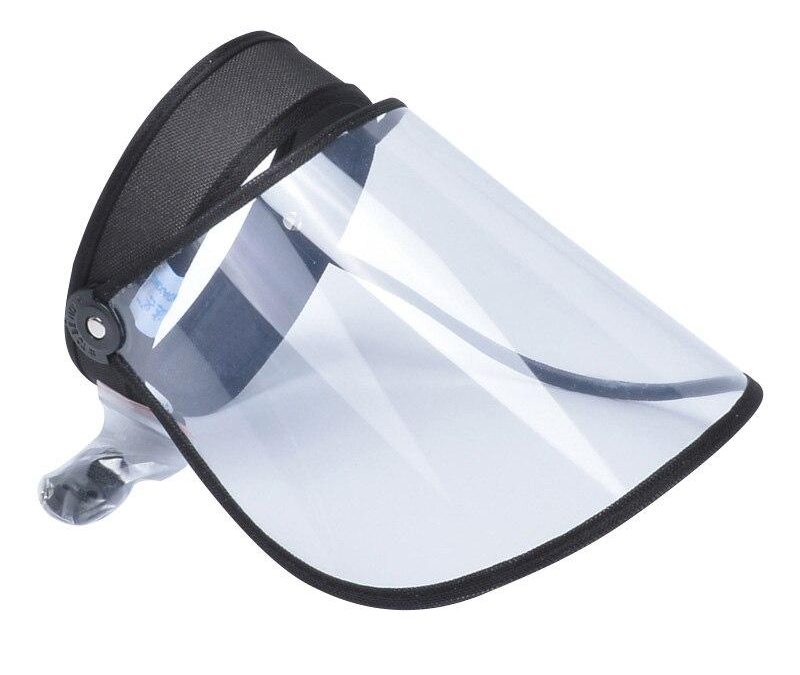
by Admin | Sep 16, 2020 | Fiqh, Research & Articles
By Mufti Zameelur Rahman
If the obligation of a non-mujtahid is only to follow, or make taqlid, of qualified mujtahids, why do scholars insist on the added obligation of restricting one’s taqlid to a single madhhab?
The paper linked below addresses this question, providing a detailed explanation for the necessity of adhering to a single madhhab in all its rulings.
The obligation and its legal basis are supported by statements and opinions from major early authorities across the recognised schools of jurisprudence. It is argued that this ruling is not only more sound in the present context, but is also supported by strong positions from within each of the four madhhabs, with some of the early scholars having quoted consensus.
Download PDF:
The Obligation of Adhering to a Single Madhhab in all its Rulings

by Admin | Sep 13, 2020 | Q&A, Ṣalāh
Question:
Assalamu ‘alaykum. If someone performs salah with a face shield visor, is the salah valid?
(Question published as received)
Answer:
In the Name of Allah, the Most Gracious, the most Merciful.
When performing ṣalāh, it is necessary for the nose and forehead to touch the ground or a firm surface in sajdah. Wearing a face shield visor prevents the forehead and nose from touching the ground which will render the ṣalāh invalid.
And Allah knows best
(Mufti) Bilal al-Mahmudi
20 Muḥarram 1442 / 09 September 2020
Concurred by: Mufti Zameelur Rahman
Note: This answer applies to the situation that no part of the face touches the shield, and the face is left effectively suspended in mid-air. If the face does reach the inside of the shield, the ruling would be different.
(قوله ووضع أكثرها واجب إلخ) اختلف هل الفرض وضع أكثر الجبهة أم بعضها وإن قل؟ قولان أرجحهما الثاني، نعم وضع أكثر الجبهة واجب للمواظبة كما حرره في البحر… (قوله كما حررناه في شرح الملتقى) حيث قال وإليه صح رجوع الإمام كما في الشرنبلالية عن البرهان وعليه الفتوى كما في المجمع وشروحه والوقاية وشروحها والجوهرة وصدر الشريعة والعيني والبحر والنهر وغيرها. اهـ. (رد المحتار على الدر المختار. ج ١ ص ٤٩٨. دار الفكر)
(أحسن الفتاوى. ج ٣ ص ٢١. سعيد)
by Admin | Sep 10, 2020 | Divorce, Q&A
Question:
Salam brother, if husband joking and prays to Allah please save me from my wife and when wife asks tells her that no intention of divorce. Does it constitute divorce rajee?
(Question published as received)
Answer:
In the name of Allah, the Most Gracious, the Most Merciful.
In the above-mentioned situation, no ṭalāq has taken place.[1] In future, the husband should exercise caution in joking in matters of ṭalāq. If the husband jokingly issues a divorce, the divorce will take place. Consider the following Ḥadīth:
عن أبي هريرة (رضي الله عنه) عن رسول الله (صلى الله عليه وسلم) قال: ثلاث جدهن جد وهزلهن جد، الطلاق والنكاح والرجعة.
Abū Hurayrah (raḍiyallāhu ‘anhu) reports that Rasūlullāh (ṣallallāhu ‘alayhi wasallam) said: “There are three such matters which are established when serious or as a joke, ṭalāq, nikāḥ and raj’ah (to take ones’ wife back after issuing a revocable divorce).”[2]
And Allah knows best
(Mufti) Bilal al-Mahmudi
Checked and Approved by,
Mufti Faisal al-Mahmudi
[١] في قوله أنت خلية أو ما أشبهها إذا قال لها أنت خلية أو قال برية، أو قال بتة أو قال بائنة، وقال لم أنو به الطلاق فالأصل في جميع ألفاظ الكنايات أنه لا يقع الطلاق إلا بالنية، وإذا قال الزوج لم أنو به الطلاق فالمسألة على وجوه: أما إن قال ذلك في حالة الرضا، أو في حالة الغضب أو في حال مذاكرة الطلاق بأن سألت طلاقها أو سأل غيرها طلاقها، ففي حال الرضا يصدق الزوج في قوله لم أنو به الطلاق في الألفاظ كلها قضاء، وديانة وفي حال مذاكرة الطلاق لا يصدق الزوج في قوله لم أنو به الطلاق. (المحيط البرهاني في الفقه النعماني. ج ٣ ص ٢٣١)
وإذا احتملت هذه الألفاظ الطلاق وغير الطلاق فقد استتر المراد منها عند السامع، فافتقرت إلى النية لتعيين المراد ولا خلاف في هذه الجملة إلا في ثلاثة ألفاظ وهي قوله: سرحتك، وفارقتك، وأنت واحدة فقال أصحابنا: قوله: سرحتك وفارقتك من الكنايات لا يقع الطلاق بهما إلا بقرينة النية كسائر الكنايات. (بدائع الصنائع. ج ٣ ص ١٠٦)
[٢] رواه أبو داود (٢١٩٤)، والترمذي (١١٨٤)، وابن ماجه (٢٠٣٩).
قال: (وكذلك اللاعب بالطّلاق والهازل به) لقوله عليه الصلاة والسلام: «ثلاث جدّهن جد وهزلهن جد: الطّلاق والنكاح والعتاق»، وقال عليه الصلاة والسلام: «من طلق لاعبًا جاز ذلك عليه»، وعن أبي الدّرداء أنّه قال: من لعب بطلاق أو عتاق لزمه، قال: وفيه نزل: {وَلا تَتَّخِذُوا آيَاتِ اللَّهِ هُزُوًا} [البقرة: ٢٣١]، وكذلك إذا أراد غير الطّلاق فسبق لسانه بالطّلاق وقع، لأنَه عدم القصد وهو غير معتبر فيه. وروى هشام عن محمّد عن أبي حنيفة أنّ من أراد أن يقول لامرأته اسقني الماء فقال أنت طالق، وقع. ويعمّ هذه الفصول كلّها قوله عليه الصلاة والسّلام: «كلُّ طلاق واقع» الحديث. (الاختيار لتعليل المختار. ج ٣ ص ١٢٤)
by Admin | Sep 10, 2020 | Books, Resources
Download a pdf copy of Jāmi‘ ad-Du‘ā’ – a collection of Istighfār, Luminous Prayers and al-Mu‘awwadhāt – by Shaykh Muḥammad Salīm Dhorat (ḥafiẓahullāh).
Download PDF
For more information, visit at-tazkiyah.com
by Admin | Sep 9, 2020 | Ḥalāl & Ḥarām, Q&A
Question:
Country: India
In the ingredients of loreal Paris white perfect toner it is mentioned alcohol. Is it permissible to use it or not?
(Question published as received)
Answer:
In the name of Allah, the Most Gracious, the Most Merciful.
In principle, if a product contains alcohol which has been derived from dates and grapes then it is not permissible to use. The alcohol used in cosmetics is often synthetic and not khamr, hence, it would be suitable to use. If you are uncertain regarding the source of the alcohol, then it is better to exercise caution and purchase alcohol free products. [1]
And Allah knows best
(Mufti) Bilal al-Mahmudi
3 Dhū l-Qa‘dah 1439 / 15 August 2018
Concurred by: Mufti Faisal al-Mahmudi
[١] (أحسن الفتاوى (٢/٩٥) سعيد)
(فتاوى دار العلوم زكريا (٦/٥٨٩) زمزم)


